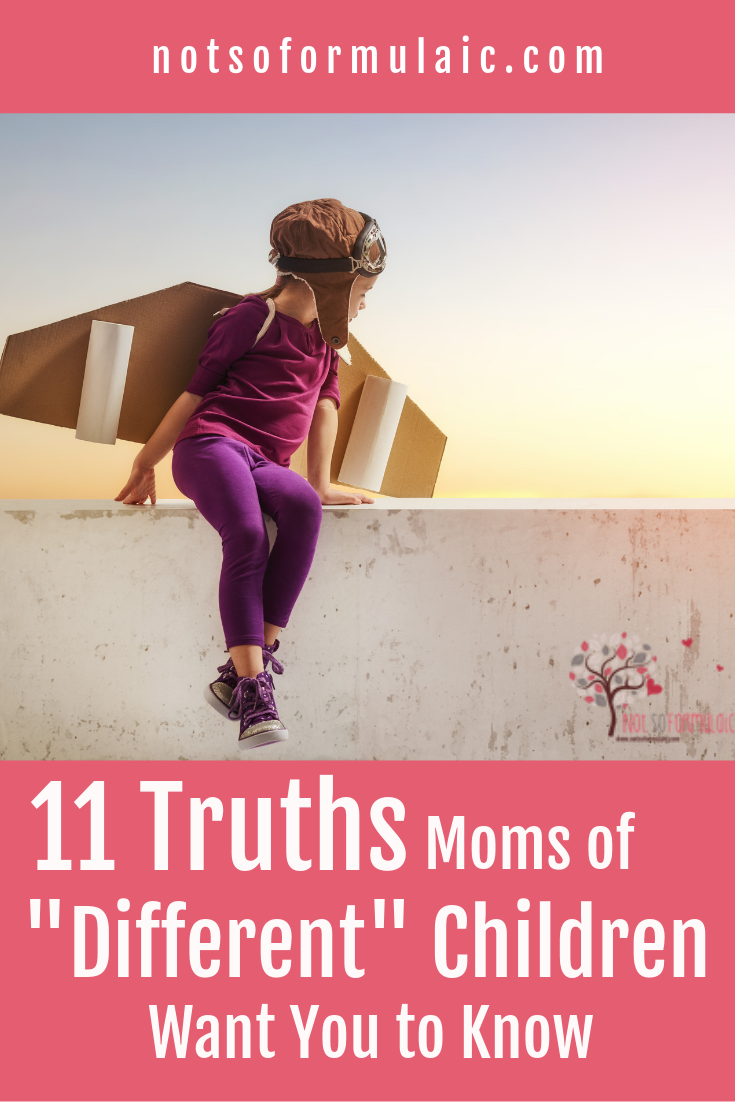Moms of kids who are different are raising kids who are quirky, intense, and march to the beat of their own drum. Here’s what we’d like you to understand about our brilliant, differently-wired children. Please give us the benefit of the doubt.
Seven years ago I was accused of child abuse inside my neighborhood Walmart. Our wicked smart, highly intense kindergartener was struggling – she had not yet been diagnosed. Her highly sensitive, anxious sister was two, a canary in our proverbial coal mine.
None of us had slept much. I dropped the eldest off at school. Against my better judgment, I stopped at the Walmart to pick up a few items.
And that’s when the two-year-old had a tantrum, precipitated by my refusal of a sequined pink doggy purse.
My accuser found us in the accessories aisle. She heard the screaming from across the store. I must have been pinching my daughter – why else would she be wailing? No child of hers had ever screamed like that, tantrum or no.
She followed us. Watched us. I’m sure that in her mind, she was doing something good. But what I wanted her to know, and what every mother like me has ever wanted those who judge, question, or wonder aloud about her family to know, is this:
Invisible disabilities exist
And yes – they can be exhausting and loud. Autism, ADHD, anxiety, sensory processing disorder – they aren’t a result of poor parenting or made up as an excuse for bad behavior. And no, you can’t generally tell a child is struggling just by observing that child out in the world.
Brilliant children are still children
It doesn’t matter how precocious, perceptive, or insightful a child may be, intellectual ability does not match emotional maturity.
Kids are still kids. They are going to do kid things.
Appearances are seldom reality
Size is not a good indicator of age. Neither are social skills. Also, a child having a meltdown or a tantrum isn’t a brat.
She is having a hard time, and so is mom.
Behavior is communication, not manipulation
When a child is having a moment, it’s not a matter of trying to get adults to do what he wants. Rather, that child is experiencing a neurological event.
To quote Dr. Ross Greene, children do well when they can.
Children hear and understand what you say
Just because you think a child is too young, too occupied, or too focused on something else doesn’t mean that child will not hear you. Rest assured, your comments about a child’s behavior or her parents’ abilities will not go over her head. She will understand and internalize, and it will come up again – through tears.
Gifted does not mean superior
And gifted children don’t think they are superior to you or yours. They struggle with school, friendships, emotions, etc. Gifted only means the brain is wired to process information at a high rate of speed. It is an indicator of ability only – not a guaranteed pass to success.
Anxiety in children is real, and it’s a beast
No, he’s not faking it. He’s not trying to worm his way out of a responsibility. He’s not a crybaby or antisocial or a weirdo or a wimp. Anxiety is brutal in children, and it manifests in ways you wouldn’t expect.
ASD (GAD, OCD, ODD, ADHD) is hard on the child, too
It is not easy to raise, teach, or care for a child with an invisible disability. But as frustrating or difficult as it might be for you, it is ten times harder for the child herself. As an adult, you have learned appropriate coping mechanisms.
Imagine learning to fly with a millstone around your neck.
A lack of apparent social graces doesn’t mean a child is rude
Nor does it mean his parents haven’t taught him how to behave.
He could be shy. He could be anxious. He could have autism or sensory needs or difficulty with impulse control.
Singling out a child’s quirks doesn’t make those quirks any easier
Yes, I know my daughter chews her hair. I know her sister paces. I know my son fixates on his favorite topics and you’re tired of listening to him talk about it.
Please focus your attention on their empathy, their wit, their joy, or their intelligence. We are already aware of what makes them unique.
We love our children for who they are, not who you might have expected them to be
And we hope you will love them for that, too.
What else would we want you to know?
We are tired.
Our children are tired.
And when our kids are having very public meltdowns or struggling out in the open, we – all of us – are grieving. We are scared, and we are lost.
We need someone to offer a smile, a nod, an encouraging “You’ve got this, mama.” We don’t need to worry about humiliation or the fear CPS might be called.
In my case, no one called CPS.
No one has accused me of anything like that ever again. I pray for that woman whenever I think of her, trying to remember to give her the benefit of the doubt she didn’t – or couldn’t – give me in the moment.
And I think of all the other women like me and our shared experiences, sisters in a differently-wired world.
The truths above come from the collective experiences of women in the Not So Formulaic community. If there were one thing you wish people could understand about your kids or your family without telling them, what would that be? Comment below and share your story – you aren’t alone, and we understand.
Enjoy this post? Read on:
Be Different, But Don’t Be Rude: Managing Needs and Social Skills in the Gifted Child
Gifted Children Do Exist. Here’s What Happens When We Forget That
That Time I Was Accused of Child Abuse in Walmart, and What it Taught Me


Thank you for sharing ! I can resonate with this !
I want to thank you so much for your blog Ginny. Your words in every single blog post resonate with me in so many ways. Thank you so much for creating this community!